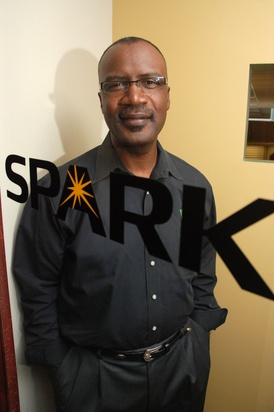 Ask an aspiring entrepreneur why they’d kill to make the jump and, without fail, four of the top 5 reasons will be:
Ask an aspiring entrepreneur why they’d kill to make the jump and, without fail, four of the top 5 reasons will be:
- Freedom
- Control
- Money
- Passion
They dream of working their own hours, not having to report to “the Man,” skipping though fields of money, loving what they do every moment of every day and changing the world. All great aspirations.
Question is -
How much is real, and how much is outright fantasy?
Let’s take a deeper look at the 4 big entrepreneurial
motivations, bust a few myths and open a few eyes:
1. Freedom.
First let’s break it down. What do people mean when they say freedom?
Sometimes they mean geographic freedom or what people have come to know
as the ability to be location independent. Sometimes they mean
financial freedom. Sometimes it’s the freedom to do what they love. And,
other times it’s freedom from a fixed schedule. Or, not having to
follow the orders of a boss. Either way, there’s a lot of myth here.
 ♦ A $700 million renewal of Ohio Third Frontier — the 10-year, $1.6 billion project to re-energize Ohio’s economy by investing in emerging technologies — is on its way to the May 4 ballot, thanks to bipartisan support of a compromise resolution by state Senate and House members this week. Third Frontier stakeholders celebrated the passage of the ballot initiative, which not only would renew funding for the project, but raise its annual grant-making ability to $175 million from about $160 million a year. In addition, the bond funding would not be subject to state budgetary issues, as is two-thirds of Third Frontier’s current budget.
♦ A $700 million renewal of Ohio Third Frontier — the 10-year, $1.6 billion project to re-energize Ohio’s economy by investing in emerging technologies — is on its way to the May 4 ballot, thanks to bipartisan support of a compromise resolution by state Senate and House members this week. Third Frontier stakeholders celebrated the passage of the ballot initiative, which not only would renew funding for the project, but raise its annual grant-making ability to $175 million from about $160 million a year. In addition, the bond funding would not be subject to state budgetary issues, as is two-thirds of Third Frontier’s current budget. ♦ A $700 million renewal of Ohio Third Frontier — the 10-year, $1.6 billion project to re-energize Ohio’s economy by investing in emerging technologies — is on its way to the May 4 ballot, thanks to bipartisan support of a compromise resolution by state Senate and House members this week. Third Frontier stakeholders celebrated the passage of the ballot initiative, which not only would renew funding for the project, but raise its annual grant-making ability to $175 million from about $160 million a year. In addition, the bond funding would not be subject to state budgetary issues, as is two-thirds of Third Frontier’s current budget.
♦ A $700 million renewal of Ohio Third Frontier — the 10-year, $1.6 billion project to re-energize Ohio’s economy by investing in emerging technologies — is on its way to the May 4 ballot, thanks to bipartisan support of a compromise resolution by state Senate and House members this week. Third Frontier stakeholders celebrated the passage of the ballot initiative, which not only would renew funding for the project, but raise its annual grant-making ability to $175 million from about $160 million a year. In addition, the bond funding would not be subject to state budgetary issues, as is two-thirds of Third Frontier’s current budget.
 Thanks to a number of spectacular successes obtained by blue-chip companies in recent years, Reverse Innovation is becoming a popular trend. Examples include GE's portable ultra-sound equipment designed in China and sold worldwide, LG's low cost air conditioner designed in India and sold worldwide, Renault's Logan low-cost model designed for Eastern European markets and now selling on Western Europe, etc.
Thanks to a number of spectacular successes obtained by blue-chip companies in recent years, Reverse Innovation is becoming a popular trend. Examples include GE's portable ultra-sound equipment designed in China and sold worldwide, LG's low cost air conditioner designed in India and sold worldwide, Renault's Logan low-cost model designed for Eastern European markets and now selling on Western Europe, etc.

 Important reminders for all the mothers, corporate soldiers and baby boomers looking to launch.
Important reminders for all the mothers, corporate soldiers and baby boomers looking to launch. I know it’s easy to call for innovation to drive economic growth at any point in history.
I know it’s easy to call for innovation to drive economic growth at any point in history.
 hat is the Future of Funding?
hat is the Future of Funding? 
 Successful entrepreneur Steve Welch has a thorn in his side, and the pain of it is spurring him on to public service.
Successful entrepreneur Steve Welch has a thorn in his side, and the pain of it is spurring him on to public service. Grabbing a notebook and pen from my bag in the back seat, I asked Esi, the program manager and driver today, to please brief me on the clients from
Grabbing a notebook and pen from my bag in the back seat, I asked Esi, the program manager and driver today, to please brief me on the clients from 

 Most universities, academic institutions and not-for-profit research organizations now have technology transfer offices that bridge the divide between academia and industry. Our two interviewees this month discuss the career opportunities offered by this discipline.
Most universities, academic institutions and not-for-profit research organizations now have technology transfer offices that bridge the divide between academia and industry. Our two interviewees this month discuss the career opportunities offered by this discipline. Economic development organization Ann Arbor SPARK said today that it had helped 33 companies announce expansions in 2009 with plans to hire 2,118 workers.
Economic development organization Ann Arbor SPARK said today that it had helped 33 companies announce expansions in 2009 with plans to hire 2,118 workers.


